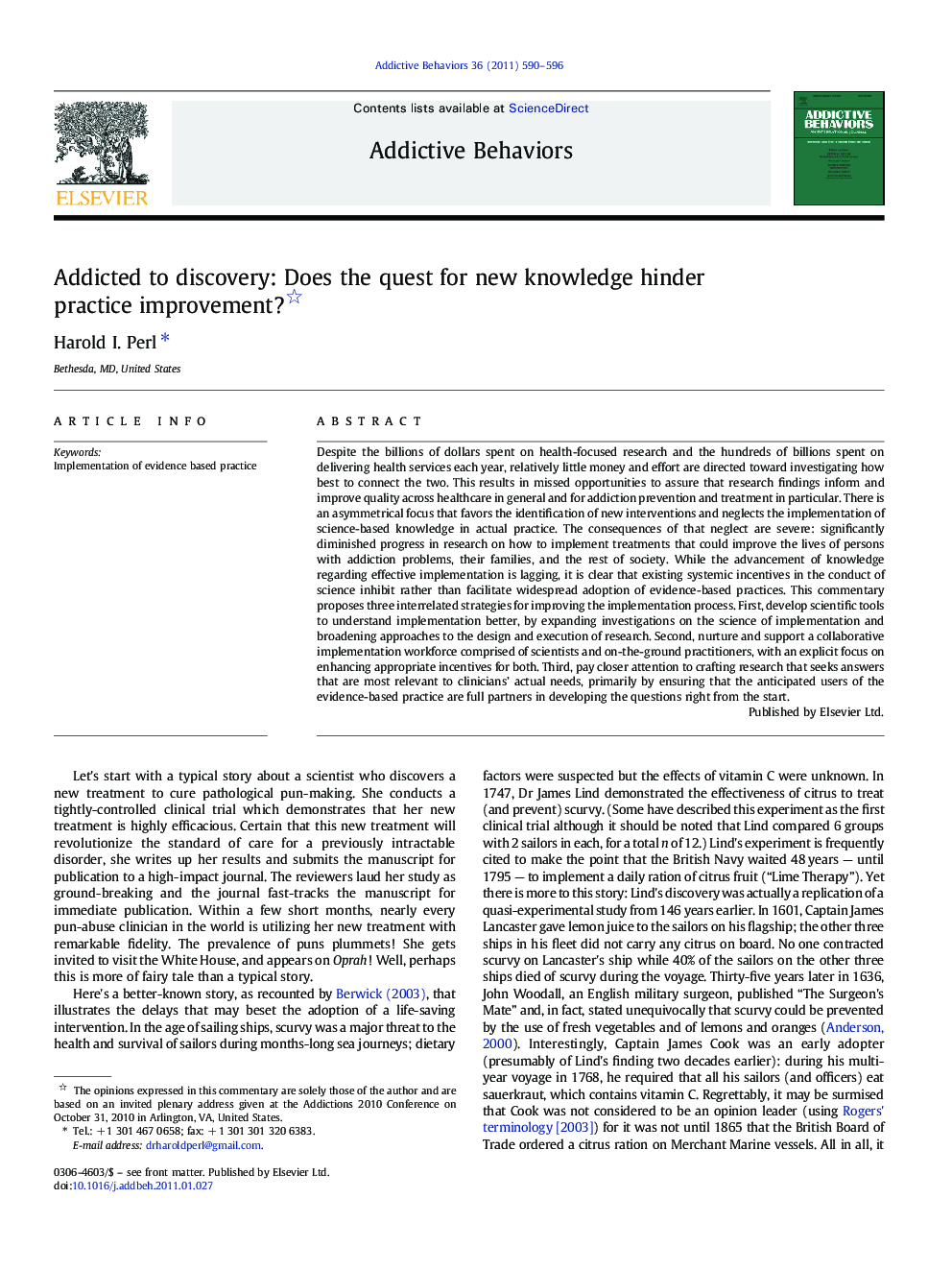| کد مقاله | کد نشریه | سال انتشار | مقاله انگلیسی | نسخه تمام متن |
|---|---|---|---|---|
| 899409 | 915381 | 2011 | 7 صفحه PDF | دانلود رایگان |

Despite the billions of dollars spent on health-focused research and the hundreds of billions spent on delivering health services each year, relatively little money and effort are directed toward investigating how best to connect the two. This results in missed opportunities to assure that research findings inform and improve quality across healthcare in general and for addiction prevention and treatment in particular. There is an asymmetrical focus that favors the identification of new interventions and neglects the implementation of science-based knowledge in actual practice. The consequences of that neglect are severe: significantly diminished progress in research on how to implement treatments that could improve the lives of persons with addiction problems, their families, and the rest of society. While the advancement of knowledge regarding effective implementation is lagging, it is clear that existing systemic incentives in the conduct of science inhibit rather than facilitate widespread adoption of evidence-based practices. This commentary proposes three interrelated strategies for improving the implementation process. First, develop scientific tools to understand implementation better, by expanding investigations on the science of implementation and broadening approaches to the design and execution of research. Second, nurture and support a collaborative implementation workforce comprised of scientists and on-the-ground practitioners, with an explicit focus on enhancing appropriate incentives for both. Third, pay closer attention to crafting research that seeks answers that are most relevant to clinicians’ actual needs, primarily by ensuring that the anticipated users of the evidence-based practice are full partners in developing the questions right from the start.
Research Highlights
► Many more resources are spent to discover new treatments than to put them into use.
► Knowledge is lacking regarding the best ways to implement and adopt new treatments.
► Existing systemic incentives tend to inhibit widespread adoption.
► Three strategies are proposed for improving the implementation process.
► Improve scientific tools; nurture adoption workforce; ask more relevant questions.
Journal: Addictive Behaviors - Volume 36, Issue 6, June 2011, Pages 590–596